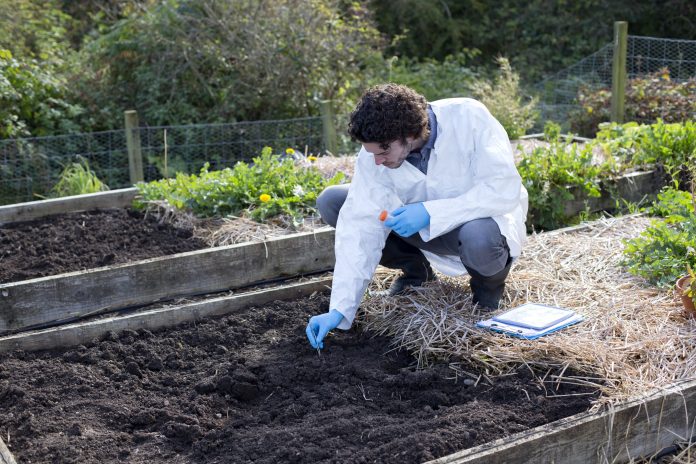Open Access Government produces compelling and informative news, publications, eBooks, and academic research articles for the public and private sector looking at health, diseases & conditions, workplace, research & innovation, digital transformation, government policy, environment, agriculture, energy, transport and more.
Home Search
mental health - search results
If you're not happy with the results, please do another search
AI soil sensors could minimise fertiliser use in agriculture
Smart sensor AI technology can reduce environmental damage created by fertilisers, allowing farmers to use fertilisers less, and more effectively.
Afforestation in temperate rainforests could lessen climate change
As the UK is unlikely to meet its tree target through natural means alone, scientists look at measures of afforestation through natural expansion.
Strong racial identity improves body image in Black youth
A new study has found that Black adolescents are more body positive when they have a strong connection to their racial identity.
88% of Europeans want more renewable energy
A poll finds almost half of Europeans believe climate change is the next global challenge, while 88% think renewable energy should be a larger part of the economy.
Performance enhancing drugs can induce eating disorders
A study finds that performance and appearance enhancing drugs are closely linked to eating disorder symptoms in the US - especially in college-age groups.
Tiny “falloposcope” can detect early ovarian cancer
Scientists invented the ‘falloposcope’ to detect early-stage ovarian cancer - now, making history, a surgeon successfully used the device to capture images of fallopian tubes.
Hospital trials app to help new parents caring for premature babies
Parents of babies leaving the NICU have been using an app to get real-time medical updates - giving them vital information that may otherwise get lost.
Scientists find there are 70% fewer pollinators, due to air pollution
Air pollution significantly reduces pollination by confusing butterflies and bees, lessening their ability to sniff out crops and wildflowers.
Childhood vocabulary can predict future emotional regulation
A team find that expressive vocabulary at the age of 5-7 can predict likelihood of good emotional regulation, four years later.
Iodine in desert dust may be helping the climate
The iodine in desert dust has the ability to decrease ozone air pollution - however, it also allows greenhouse gases to stick around for longer.
Cutting beef from US diet could slash carbon footprints by 48%
Tulane University research finds that swapping just one serving per day for a more planet friendly alternative, North Americans could cut their carbon footprint by 48%.
$2 million grant to explore link between chronic stress and Alzheimer’s
Researchers at WVA are investigating the connection between chronic stress and Alzheimer’s Disease using new $2 million grant from NIH
How has marsh pollution affected the survival of sea anemones?
Scientists say the stationary sea anemone, Nematostella, has been decreasing in numbers - as it becomes severely impacted by pollution.
Protecting ageing synapses through exercise
Keeping the ageing population as active as possible, enhances the connections between neurons to maintain healthy cognition.
More trusting societies have greater success managing COVID-19
Research has found that countries with higher success in minimising coronavirus cases and deaths, have more trust within their society and governments.
Restoring food security after coral bleaching events
Researchers have found that coral reefs are more resilient ecosystems than previously thought, remaining rich sources of macronutrients for the fishing industry even after coral bleaching.
How do we define green infrastructure?
An exploration of ‘green infrastructure’ plans across 20 US cities found several inconsistent and limited definitions - so researchers created a new one.
Why do businesses still not use reusable packaging?
Researchers suggest a digital track and trace system to encourage businesses to adopt reusable packaging and reduce waste, suggesting reasons why they may not have adopted them already.
FDA approves new long-lasting drug for HIV prevention
December saw monumental steps being taken in HIV prevention with the FDA approving their first approval of long-acting HIV prevention medication.
Shark antibody-like proteins could neutralise COVID-19 viruses
Antibody-like proteins from the immune systems of sharks could help to prepare for future coronaviruses, according to new research.





















